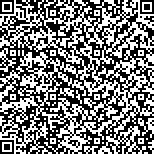| Quote
: |
喻斌,曾孟晖,徐寅,杜珊,黄柳向,毛一之,符佳.肝胃百合汤对慢性应激与幽门螺杆菌双重损伤因素模型小鼠胃黏膜组织HSP70、NF-κB蛋白表达的影响[J].湖南中医药大学学报英文版,2019,39(9):1073-1078.[Click to copy
] |
|
| |
|
|
| This paper
:Browser 3296times Download 1167times |
| 肝胃百合汤对慢性应激与幽门螺杆菌双重损伤因素模型小鼠胃黏膜组织HSP70、NF-κB蛋白表达的影响 |
| 喻斌,曾孟晖,徐寅,杜珊,黄柳向,毛一之,符佳 |
| (湖南中医药大学第一附属医院, 湖南 长沙 410007;湖南省人民医院星沙院区/长沙县人民医院, 湖南 长沙 410100;湖南中医药大学, 湖南 长沙 410208) |
| 摘要: |
| 目的 观察肝胃百合汤对慢性应激与Hp感染双因素损伤模型小鼠胃组织NF-κB、HSP70蛋白表达的影响,并研究其治疗机制。方法 将60只雄性小鼠随机分为6组,分别为空白组、单纯应激组、单纯Hp组、Hp+应激组、肝胃百合汤组及雷尼替丁组;空白组和单纯Hp组正常饲养,不限制进食进水;其余各组小鼠随机选取禁食、禁水、电击、行为束缚等10种刺激方法制备慢性应激小鼠模型。于造模第7天时,除空白组及单纯应激组外,其余各组小鼠给予Hp菌液灌胃;连续造模14 d时,肝胃百合汤组小鼠灌胃肝胃百合汤,雷尼替丁组小鼠予以灌胃盐酸雷尼替丁,其他各组小鼠灌胃蒸馏水;连续干预14 d后,取胃组织检测溃疡指数;采用免疫组化法检测小鼠胃黏膜组织HSP70、NF-κB的蛋白表达。结果 对比空白组,单纯Hp组、单纯应激组以及Hp+应激组小鼠的溃疡指数与HSP70、NF-κB蛋白表达明显升高(P<0.01),且Hp+应激组小鼠的溃疡指数及NF-κB蛋白表达显著高于单纯应激组及单纯Hp组(P<0.01);对比Hp+应激组,肝胃百合汤组和雷尼替丁组小鼠溃疡指数均显著降低(P<0.01),且肝胃百合汤小鼠的溃疡指数组显著低于雷尼替丁组(P<0.01);肝胃百合汤组和雷尼替丁组HSP70蛋白表达显著增加(P<0.01),NF-κB蛋白表达显著降低(P<0.01),且肝胃百合汤组HSP70蛋白表达量大于雷尼替丁组,NF-κB蛋白表达量低于雷尼替丁组(P<0.01)。结论 慢性应激与Hp可协同致胃黏膜损伤;肝胃百合汤可能是通过使HSP70蛋白表达增加,加强胃组织的自身修复作用,使受体的自身免疫能力提高,并降低NF-κB蛋白表达,减少其活性,使受损胃组织的炎症反应降低,从而起到抑制Hp,修复受损胃组织,加快胃溃疡好转的作用。 |
| 关键词: 肝胃百合汤 慢性应激性胃溃疡 幽门螺杆菌 HSP70 NF-κB |
| DOI:10.3969/j.issn.1674-070X.2019.09.005 |
| Received:July 05, 2018 |
| 基金项目:湖南省中医药管理局重点课题(201512);湖南省教育厅科学研究重点项目(17A158)。 |
|
| Effects of Ganwei Baihe Decoction on Expressions of HSP70 and NF-κB Proteins in Gastric Mucosa Tissue of Model Mice with Double Injury Factors of Chronic Stress and Helicobacter pylori |
| YU Bin,ZENG Menghui,XU Yin,DU Shan,HUANG Liuxiang,MAO Yizhi,FU Jia |
| (The First Affiliated Hospital of Hunan University of Chinese Medicine, Changsha, Hunan 410007, China;Xingsha Branch of Hunan Provincial People's Hospital/People's Hospital of Changsha County, Changsha, Hunan 410100, China;Hunan University of Chinese Medicine, Changsha, Hunan 410208, China) |
| Abstract: |
| Objective To observe the effects of Ganwei Baihe Decoction on expressions of HSP70 and NF-κB proteins in gastric mucosa tissue of model mice with double injury factors of chronic stress and Helicobacter pylori, and to study its mechanism of treatment. Methods A total of 60 male mice were randomly divided into 6 groups:blank group, stress group, Hp group, Hp + stress group, Ganwei Baihe Decoction group, and ranitidine group. The blank group and the Hp group were given normal diet, without limiting the intake of food and water; the other groups were randomly given 1 of the 10 stimulus methods such as fasting food, fasting water, electric shock, behavior constraints and other methods to prepare chronic stress mouse models. On the 7th day of modeling, except the blank group and the stress group, the other groups were given Hp bacterium solution by gavage. After 14 d of continuous modeling, the Ganwei Baihe Decoction group was given Ganwei Baihe Decoction by gavage, the ranitidine group was given ranitidine hydrochloride by gavage, and the rest groups were given distilled water by gavage. After 14 d of continuous intervention, gastric tissue was selected to determine ulcer indexes. The expressions of HSP70 and NF-κB proteins in gastric mucosa tissue of mice were detected by immunohistochemistry. Results The ulcer indexes and HSP70 and NF-κB protein expressions in the stress group, the Hp group and the Hp + stress group were significantly higher than those in the blank group (P<0.01), and the ulcer index and NF-κB protein expression in the Hp + stress group were significantly higher than those in the stress group and the Hp group (P<0.01). Compared with the Hp + stress group, the ulcer indexes in the Ganwei Baihe Decoction group and the ranitidine group were significantly decreased (P<0.01), and the ulcer index in the Ganwei Baihe Decoction group was significantly lower than that in the ranitidine group (P<0.01). The expression of HSP70 protein in the Ganwei Baihe Decoction group and the ranitidine group was significantly increased (P<0.01), and the NF-κB decreased expression was significantly decreased (P<0.01). And the expression quantity of HSP70 protein in the Ganwei Baihe Decoction group was higher than that in the ranitidine group, and the expression quantity of NF-κB protein was lower than that in the ranitidine group (P<0.01). Conclusion Chronic stress and Hp can cause gastric mucosal injury in synergy. Ganwei Baihe Decoction can increase the expression of HSP70 protein, promote self-repair function of gastric tissue, enhance the immunity of receptors, decrease NF-κB protein expression and activity, and decrease the inflammatory reaction of gastric tissue, so as to achieve the effects of inhibiting Hp, repairing gastric mucosal injury, and promoting ulcer healing. |
| Key words: Ganwei Baihe Decoction chronic stress gastric ulcer Helicobacter pylori HSP70 NF-κB |
|

二维码(扫一下试试看!) |
|
|
|
|


